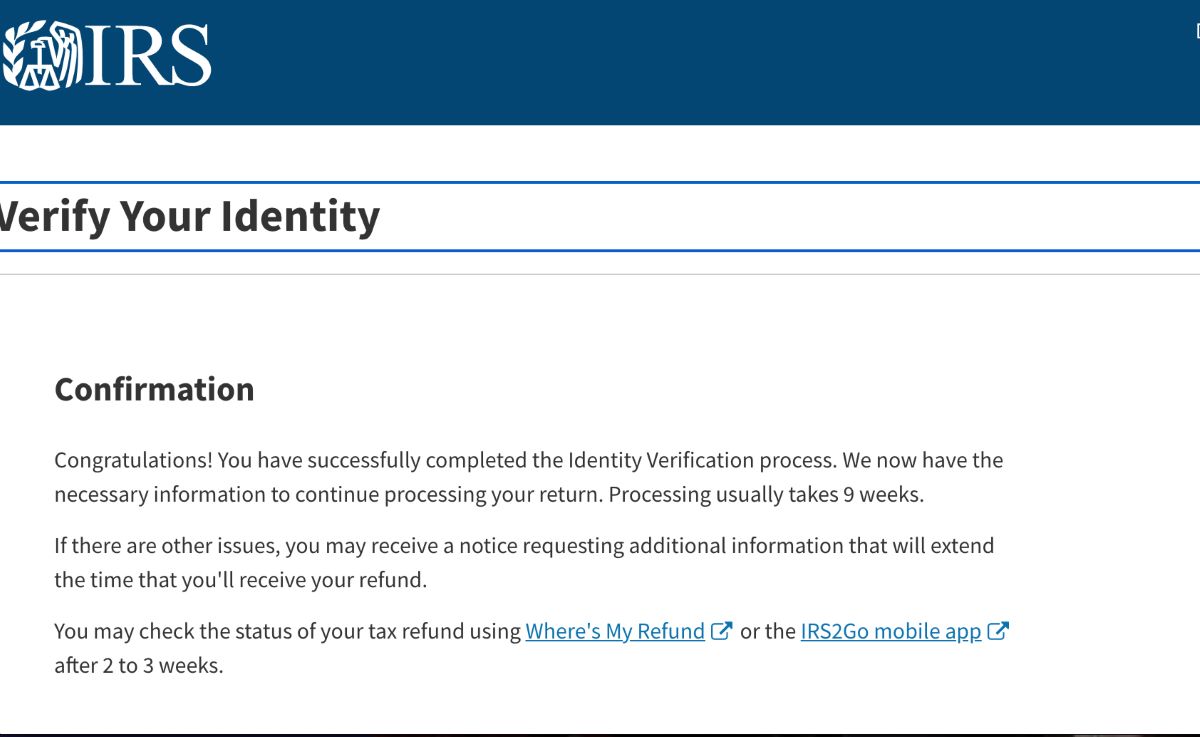Home>Finance>How Much Does Morgan Stanley Charge For Wealth Management


Finance
How Much Does Morgan Stanley Charge For Wealth Management
Published: January 21, 2024
Find out the cost of wealth management services at Morgan Stanley. Gain insight into their fees and charges for financial planning and investment management.
(Many of the links in this article redirect to a specific reviewed product. Your purchase of these products through affiliate links helps to generate commission for LiveWell, at no extra cost. Learn more)
Table of Contents
Introduction
Managing one’s wealth effectively is a crucial aspect of achieving financial stability and realizing long-term financial goals. Wealth management involves comprehensive financial planning, investment management, and estate planning to optimize the growth and preservation of assets. With the complexity and ever-changing nature of the financial markets, many individuals and families seek the assistance of professional wealth management firms.
Morgan Stanley, one of the world’s leading financial services firms, offers a wide range of wealth management services to cater to the needs of high-net-worth individuals and families. With a strong reputation and a track record of success, Morgan Stanley has become a go-to choice for those seeking expert guidance in managing their wealth.
In this article, we will delve into the world of wealth management and explore the services offered by Morgan Stanley. Furthermore, we will discuss the fees and charges associated with their wealth management services, as well as factors that can influence their pricing. Finally, we will compare Morgan Stanley’s fees with those of other wealth management providers and provide tips for evaluating wealth management fees effectively.
Whether you are considering Morgan Stanley or another wealth management provider, understanding the fees and charges involved is essential in making informed decisions about your financial future. By the end of this article, you will have a comprehensive understanding of Morgan Stanley’s wealth management fees and be better equipped to evaluate the costs and benefits of their services.
Understanding Wealth Management
Wealth management is a holistic approach to financial planning that encompasses various aspects of an individual’s financial life. It goes beyond simply managing investments and focuses on optimizing all aspects of wealth, including income, expenses, taxes, retirement planning, estate planning, and risk management.
The goal of wealth management is to help individuals and families achieve their financial objectives, whether it’s growing their assets, preserving wealth for future generations, or planning for a comfortable retirement. By taking into account the unique circumstances and goals of each client, wealth managers can develop personalized strategies that align with their clients’ financial aspirations.
One of the primary benefits of wealth management is the access to a team of financial professionals with specialized expertise. These professionals, such as financial advisors, investment managers, tax specialists, and estate planning attorneys, work together to provide comprehensive guidance tailored to each client’s needs.
Furthermore, wealth management takes into consideration the ever-changing financial landscape and adjusts strategies accordingly. This proactive approach helps clients navigate market volatility, regulatory changes, and economic conditions to protect and grow their wealth.
Another key aspect of wealth management is asset allocation. Wealth managers assess a client’s risk tolerance, investment goals, and time horizon to create a well-diversified investment portfolio. By spreading investments across different asset classes, industries, and geographical regions, wealth managers aim to mitigate risk and maximize returns.
Additionally, wealth management includes comprehensive financial planning services such as retirement planning, tax planning, and estate planning. These services ensure that clients have a strategic roadmap for achieving their long-term financial objectives and are prepared for potential challenges along the way.
Overall, wealth management offers a comprehensive and personalized approach to financial planning, combining expertise from various fields to deliver tailored strategies that align with clients’ goals and aspirations.
Morgan Stanley’s Wealth Management Services
Morgan Stanley offers a wide range of wealth management services tailored to the unique needs of high-net-worth individuals and families. Their comprehensive approach aims to help clients grow, protect, and transfer their wealth effectively. Here are some of the key wealth management services provided by Morgan Stanley:
- Financial Planning: Morgan Stanley’s team of financial advisors works closely with clients to create personalized financial plans. These plans take into account various factors such as investment goals, risk tolerance, cash flow needs, and tax strategies. Through in-depth analysis and ongoing monitoring, Morgan Stanley helps clients stay on track towards their financial targets.
- Investment Management: Morgan Stanley offers a range of investment management services, tailored to different risk profiles and investment objectives. Their team of experienced investment professionals provides insights and recommendations on asset allocation, portfolio diversification, and investment selection. Clients can choose from a wide array of investment options, including equities, fixed income, alternative investments, and mutual funds.
- Wealth Advisory: Morgan Stanley’s wealth advisory services focus on providing guidance and solutions for complex financial issues. This includes estate planning, philanthropy, risk management, and legacy planning. With access to a network of specialists, Morgan Stanley helps clients navigate these intricate aspects of their financial lives.
- Alternative Investments: In addition to traditional investment options, Morgan Stanley offers access to alternative investment strategies. These can include private equity, hedge funds, real estate, and commodities. The aim is to provide clients with opportunities for enhanced diversification and potential higher returns.
- Banking and Lending Services: Morgan Stanley provides a range of banking and lending services to cater to the financial needs of their wealth management clients. These include lines of credit, mortgages, customized financing solutions, and treasury services.
Morgan Stanley combines their extensive financial expertise with advanced technology tools to deliver a seamless and personalized wealth management experience. By leveraging their global resources and deep market insights, they strive to help clients achieve their financial goals and preserve their wealth for future generations.
Fees and Charges for Wealth Management
When it comes to wealth management services, it’s important to understand the fees and charges associated with these services. Morgan Stanley, like other wealth management providers, charges fees based on the value of the assets they manage and the services they provide. Here are the typical fee structures you can expect when working with Morgan Stanley:
- Asset Management Fee: Morgan Stanley typically charges an asset-based fee for managing clients’ investment portfolios. This fee is usually calculated as a percentage of the total assets under management (AUM) and is charged annually or quarterly. The specific percentage fee can vary depending on the size of the portfolio and the range of services provided.
- Transaction Fees: Some wealth management activities, such as buying or selling securities, may incur transaction fees. These fees are typically charged separately from the asset management fee and depend on the specific transactions executed on behalf of the client.
- Custodial Fees: Morgan Stanley also charges custodial fees for the safekeeping and administration of clients’ assets. These fees cover services such as account maintenance, record-keeping, and reporting.
- Additional Service Fees: Depending on the level of service and complexity of a client’s financial situation, additional fees may be charged for specialized services. These can include financial planning, estate planning, tax planning, and wealth advisory services. The fees for these additional services are typically negotiated on a case-by-case basis.
It’s important to note that the fees and charges associated with wealth management can vary depending on factors such as the size of the portfolio, the scope of services required, and the complexity of the client’s financial situation. Therefore, it’s essential to have a transparent discussion with your Morgan Stanley financial advisor to fully understand the fees and charges applicable to your specific circumstances.
Furthermore, it’s worth considering that investment products and strategies may also have associated expenses, such as expense ratios for mutual funds or management fees for alternative investments. These costs should be reviewed and understood before making investment decisions.
Overall, while wealth management services come with fees and charges, many individuals and families find value in the expertise, personalized guidance, and comprehensive support provided by firms like Morgan Stanley. It’s essential to evaluate the potential benefits against the costs to determine if the fees are justified and align with your financial goals.
Factors Affecting Morgan Stanley’s Fees
The fees charged by Morgan Stanley for their wealth management services can vary based on several factors. It’s important to understand these factors to gain insight into how and why fees may vary from client to client. Here are some key factors that can influence the fees charged by Morgan Stanley:
- Portfolio Size: The size of your investment portfolio can have a significant impact on the fees charged by Morgan Stanley. Generally, the larger the portfolio, the lower the percentage fee charged. This is because larger portfolios often require less effort and resources to manage compared to smaller ones.
- Services Provided: The scope and complexity of the wealth management services provided can influence the fees. If you require additional services such as financial planning, estate planning, or tax planning, the fees may be higher. On the other hand, if you only require investment management without additional services, the fees may be comparatively lower.
- Investment Strategy: Different investment strategies may have associated costs and fees. For example, if you choose to invest in actively managed funds or alternative investments, which require more research and management, the fees may be higher compared to passive investment strategies or traditional asset classes.
- Asset Allocation: The allocation of your assets across different asset classes and investment vehicles can impact the fee structure. Certain asset classes or investment products may have higher or lower associated fees, and the allocation mix can affect the overall fee calculation.
- Level of Customization: If you require highly customized and tailored wealth management solutions, the fees may be higher. Customization requires additional time and expertise from the wealth management team to meet your specific needs and objectives.
- Market Conditions: Fluctuations in the financial markets can influence the fees charged by Morgan Stanley. During periods of high market volatility or economic uncertainty, more active management and monitoring may be necessary, potentially leading to slightly higher fees.
It’s important to note that the fee structure and specific rates are typically agreed upon through a negotiation between the client and Morgan Stanley. The firm’s fee structure is designed to align the interests of clients and the firm, ensuring a fair and transparent relationship.
Before engaging in a wealth management relationship with Morgan Stanley or any other provider, it’s crucial to have a detailed discussion about fees and potential fee structures. This will help you understand the factors that may affect the fees and ensure that you are comfortable with the fee arrangement.
Remember, fees are just one aspect to consider when evaluating a wealth management provider. The overall value, expertise, and quality of services should also be taken into account when making a decision that aligns with your financial goals.
Comparing Morgan Stanley’s Fees with Other Wealth Management Providers
When considering wealth management services, it is important to compare the fees charged by different providers to ensure you are getting competitive rates and value for your money. While Morgan Stanley is a renowned wealth management firm, it is important to compare their fees with those of other providers in the industry. Here are some factors to consider when comparing Morgan Stanley’s fees:
- Fee Structures: Different wealth management providers may have varying fee structures. Some may charge a flat fee, while others may charge a percentage of assets under management. Compare the fee structures of different providers to see how they align with your financial goals and preferences.
- Services Offered: Assess the range of services included in the fee structure. Some providers may offer comprehensive financial planning, tax planning, and estate planning services as part of their fee, while others may charge extra for these additional services. Take into account the breadth and depth of the services offered when comparing fees.
- Portfolio Size: Consider how the fees vary based on the size of the portfolio. Some providers may offer volume discounts or tiered fee structures, where the percentage fee decreases as the portfolio size increases. Assess how the fees adjust based on your portfolio size to determine the most cost-effective option.
- Customization and Expertise: Evaluate how providers customize their services to meet your unique needs. Some providers may offer more personalized services and expertise for a higher fee, while others may have a more standardized approach. Consider the level of customization and expertise you require and how it aligns with the fees charged.
- Performance and Value for Money: Although fees are important, it is crucial to consider the overall value for the fees charged. Assess the historical performance and track record of different providers, as well as the quality of their services, to determine if the fees are justified. Don’t solely focus on the fees, but also consider the potential for investment returns and the quality of the wealth management advice.
When comparing Morgan Stanley’s fees with other wealth management providers, take into account these different factors to make an informed decision. A lower fee does not always equate to better value, and a higher fee may be justified by more comprehensive services or better overall performance.
Additionally, it is important to review any potential additional fees or charges that may apply, such as transaction fees or custodial fees. These additional fees can impact the overall cost of the wealth management relationship and should be considered in your comparison.
Ultimately, the decision on which wealth management provider to choose should be based on a thorough comparison of fees, services, expertise, and value for money. Consider your individual financial goals and priorities to find the provider that best meets your needs and offers a fee structure that aligns with your expectations.
Tips for Evaluating Wealth Management Fees
Evaluating the fees associated with wealth management services is an important step to ensure you are making informed decisions about your financial future. Here are some tips to help you evaluate and assess wealth management fees effectively:
- Understand the Fee Structure: Take the time to understand how the fees are structured and calculated. Is it a flat fee or a percentage of assets under management? Are there any additional fees for specific services? Understanding the fee structure will help you compare and assess the costs involved.
- Consider the Range of Services: Evaluate the breadth and depth of services provided by the wealth management firm. Determine if the services offered are aligned with your financial goals and if they justify the fees being charged. Look for a provider that delivers comprehensive services that address your specific needs.
- Weigh the Expertise and Track Record: Consider the expertise and track record of the wealth management firm. Look at the qualifications and experience of the financial advisors and investment professionals. A higher fee may be justified if the firm has a proven track record of delivering strong investment performance and personalized advice.
- Compare Fees Across Providers: It’s essential to compare fees across different wealth management providers. Request fee schedules from multiple firms and consider how their fees stack up against each other. Remember to account for differences in the range of services offered and the portfolio size.
- Balance Fees with Value: While fees are an important consideration, don’t make it the sole determining factor. Assess the overall value and quality of the services provided. Consider factors such as investment performance, personalized advice, access to research, and the level of customer service. It’s important to find the right balance between fees and the value you are receiving.
- Negotiate and Review: Don’t hesitate to negotiate fees with the wealth management firm. Depending on the size of your portfolio and the services required, there may be room for negotiation. Additionally, regularly review the fee arrangement to ensure it aligns with your evolving financial goals and circumstances.
- Transparency and Communication: Choose a wealth management firm that values transparency and effective communication. Make sure the firm is clear and upfront about their fees and any potential additional charges. Regular communication and transparency will help you better understand the value you are receiving for the fees paid.
Remember, the goal is to find a wealth management provider that offers a balance between competitive fees, comprehensive services, expertise, and value for money. It’s important to take a holistic approach when evaluating fees and consider the overall financial benefits and peace of mind that come from working with a trusted and reputable wealth management firm.
Conclusion
Wealth management is a crucial aspect of achieving financial stability and reaching long-term financial goals. Morgan Stanley, as a leading wealth management provider, offers a range of services to assist high-net-worth individuals and families in managing and growing their wealth.
When considering Morgan Stanley or any other wealth management provider, it is important to understand the fees and charges associated with their services. The fees charged by Morgan Stanley are typically based on the size of the portfolio, the range of services provided, and the complexity of the client’s financial situation.
Comparing Morgan Stanley’s fees with those of other wealth management providers is essential to ensure competitive rates and value for money. Consider factors such as fee structure, services offered, customization, and performance to make an informed decision about the best wealth management option for your needs.
When evaluating wealth management fees, it’s crucial to strike a balance between fees and the value provided. Consider the expertise of the firm, the range of services offered, and the potential for investment returns. Negotiating fees, reviewing fee arrangements regularly, and maintaining open communication with the wealth management provider are also important practices.
Ultimately, the decision on which wealth management provider to choose should be based on careful evaluation of fees, services, expertise, and the overall value provided. By selecting a trusted and reputable firm, you can gain peace of mind knowing that your financial well-being is in capable hands.
Remember, wealth management is not just about managing investments, but also about comprehensive financial planning, tailored advice, and long-term strategies. Make sure to take all these aspects into account when determining the most suitable wealth management provider for your unique financial goals and aspirations.














